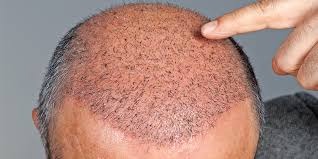If you’re experiencing hair thinning, baldness, or significant hair loss, you can benefit from a hair restoration procedure. After treatment, the results may last for many years. Here are some factors that may influence the permanence of hair transplants:
Procedure Type
For hair transplants that last for long periods, skilled surgeons use approved techniques such as Follicular Unit Extraction (FUE) and Follicular Unit Transplantation (FUT). In FUE, a trained professional removes individual follicles with minimal harm to the surrounding tissue, enhancing the survival of transplanted hair. Because FUT enables the surgeon to harvest more hair follicles in one session, covering wider areas, it helps produce results that last longer. Strong and healthy donor hair has a good chance of surviving the transplant procedure and thriving in its new site. An experienced surgeon distributes hair follicles evenly across the scalp to create a natural-looking hairline and a durable outcome.
Post-Operative Care
A few days after treatment, a hair restoration specialist may instruct you to wash your hair gently using a mild shampoo and lukewarm water. You may also use a gentle moisturizer on your scalp to keep the area hydrated and promote healing. To encourage healthy hair follicles to thrive and promote your comfort, a professional prescribes pain medication and antibiotics. Taking your post-op medications prevents discomfort and infections. During the first few weeks, wear a hat when you’re outdoors to minimize the risk of damage to healing follicles and skin. You may elevate your head overnight using pillows to help reduce swelling and allow the transplanted hair to settle in for long-lasting results.
Medications
Treatments such as minoxidil and Propecia may help preserve existing hair and enhance the overall results of the transplant. Minoxidil is applied directly to the scalp to help improve blood flow to hair follicles, stimulating growth. After a hair transplant, using minoxidil may make your hair appear thicker and denser. Propecia is a pill you can take to enhance the results by preventing hair loss in areas surrounding the transplant. Some healthcare providers prescribe these medications together to promote hair growth and prevent further loss. If you want to maintain your hair transplant results, use the medication according to your doctor’s instructions.
Lifestyle Factors
Eating foods rich in nutrients supports the health of hair follicles, allowing transplant results to last longer. Drinking water throughout the day hydrates the body and the skin. This promotes a healthy environment for your hair to grow. You can discuss with your healthcare provider the option of taking hair-supporting supplements, like biotin and other vitamins. Other lifestyle adjustments, like quitting smoking, help you avoid toxins that damage hair follicles and accelerate hair loss. Regular exercise and meditation reduce the effects of stress on your hair by promoting better circulation to the scalp.
Book an Appointment for a Hair Restoration Treatment
If you follow your doctor’s after-care instructions, eat a balanced diet, and use the right medications, your hair transplant results should last for years. A qualified surgeon will carefully distribute hair follicles to create a natural appearance and boost the success of the transplant. Book an appointment with a trusted restoration clinic today to learn more about managing hair loss issues.




